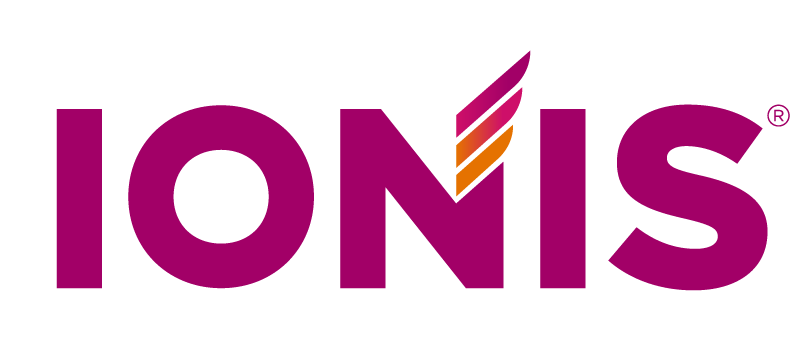Press Releases
Isis Pharmaceuticals Initiates Phase I Clinical Trial of Second-Generation Antisense Drug ISIS 113715 for Type 2 Diabetes
First Antisense Compound for Metabolic Disease to Enter Human Clinical Trials
CARLSBAD, Calif., May 14 /PRNewswire-FirstCall/ -- Isis Pharmaceuticals, Inc. (Nasdaq: ISIS) announced today it has initiated a Phase I clinical trial of ISIS 113715 for Type 2 diabetes. ISIS 113715 is a second-generation antisense drug designed to improve defective insulin signaling by targeting the gene, PTP-1B. PTP-1B reduces insulin's ability to regulate blood sugar levels. In preclinical studies, ISIS 113715 improved the regulation of blood sugar levels, an outcome critical in the management of Type 2 diabetes.
"We are excited to move Isis' first metabolic drug into clinical development. ISIS 113715 has demonstrated compelling activity in well- accepted animal models of diabetes without causing hypoglycemia or weight gain, effects commonly observed with other diabetes treatments," said Mark Wedel, M.D., Vice President, Clinical Research and Chief Medical Officer. "We are optimistic this compound may provide an improved treatment option for millions of people who have Type 2 diabetes."
The Phase I clinical trial will assess the safety and pharmacokinetic profile of several doses of ISIS 113715 by parenteral administration. The trial is planned to enroll 20 healthy volunteers.
In preclinical studies, ISIS 113715 demonstrated positive effects in five well-characterized and accepted models of diabetes. The drug normalized blood sugar levels in multiple rodent models and improved glucose tolerance in normal and obese monkeys. In addition, ISIS 113715 did not produce hypoglycemia or weight gain, a characteristic of many other Type 2 diabetes treatments. ISIS 113715 has demonstrated consistent reduction of PTP-1B mRNA and protein levels in liver and fat, key tissues known to be important in the regulation of blood sugar levels.
PTP-1B has long been considered an "undruggable" target. Pharmaceutical companies interested in diabetes research have actively pursued phosphatases, such as PTP-1B, for years as part of traditional small molecule discovery efforts. However, due to structural homologies among closely related enzymes it is often difficult to identify small molecule drugs that selectively inhibit one phosphatase without significantly affecting others.
With the exquisite specificity of antisense technology, Isis scientists were able to design a drug that targets PTP-1B. Antisense inhibition of PTP-1B expression enables insulin receptors to stay active longer, allowing for more sugar uptake into cells, and thereby lowering sugar levels in the bloodstream.
According to the National Institutes of Diabetes and Digestive and Kidney Diseases, approximately 17 million Americans are affected by diabetes, a metabolic disease that affects the body's use of sugars. Type 2 diabetes, also known as adult-onset diabetes, accounts for 90-95% of all diagnosed diabetes cases. Diabetes can lead to serious problems of the eyes, kidneys, nerves, gums and teeth. The most serious problem caused by diabetes is heart disease. People with diabetes are more than twice as likely as people without diabetes to have heart disease or a stroke.
Isis Pharmaceuticals, Inc. is exploiting its expertise in RNA to discover and develop novel human therapeutic drugs. The company has commercialized its first product, Vitravene® (fomivirsen), to treat CMV-induced retinitis in AIDS patients. In addition, Isis has 13 antisense products in its development pipeline, with two in late-stage development and five in Phase II human clinical trials. Affinitak™ (formerly called LY900003 and ISIS 3521), an inhibitor of PKC-alpha, is in Phase III development for non-small cell lung cancer, and alicaforsen (ISIS 2302), an ICAM-1 inhibitor, is in Phase III human clinical trials for Crohn's disease. Isis has a broad patent estate, as the owner or exclusive licensee of more than 1,200 issued patents worldwide. Isis' GeneTrove™ division uses antisense to assist pharmaceutical industry partners in validating and prioritizing potential gene targets through customized services. Ibis Therapeutics™ is a division focused on the diagnosis of infectious organisms and the discovery of small molecule drugs that bind to RNA. Additional information about Isis is available at www.isispharm.com .
This press release contains forward-looking statements about the potential of the investigational compound ISIS 113715 for Type 2 diabetes and the potential of Isis' drug development programs. Any statement describing a goal, expectation, intention or belief of the company is a forward-looking statement and should be considered an at-risk statement. Such statements are subject to certain risks and uncertainties, particularly those inherent in the process of discovering, developing and commercializing drugs that are safe and effective for use as human therapeutics and financing such activities. Actual results could differ materially from those projected in this release. As a result, you are cautioned not to rely on these forward-looking statements. These and other risks concerning Isis' research and development programs are described in additional detail in the company's Annual Report on Form 10-K for the period ended December 31, 2002, which is on file with the U.S. Securities and Exchange Commission, copies of which are available from the company.
Vitravene® is a registered trademark of Novartis AG.
GeneTrove™ and Ibis Therapeutics™ are trademarks of Isis Pharmaceuticals, Inc.
Affinitak™, a trademark of Eli Lilly and Company, is an investigational cancer compound being developed through an alliance between Lilly and Isis Pharmaceuticals, Inc. and marketed globally by Lilly.
SOURCE Isis Pharmaceuticals, Inc.
